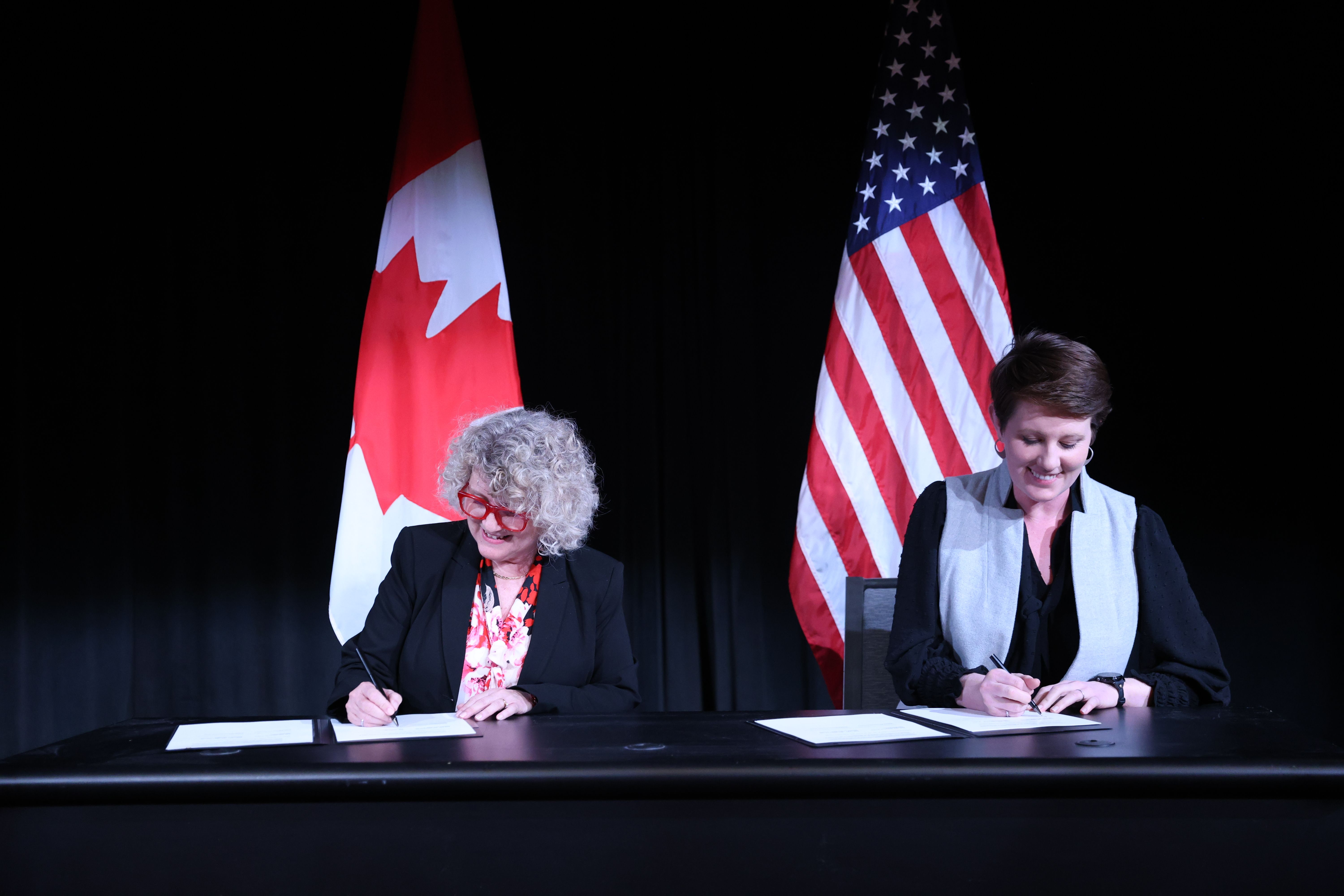
Canada’s Nuclear Waste Management Organisation (NWMO) and the US Department of Energy (DOE) have signed a Statement of Intent (SOI) to Co-operate on Used Nuclear Fuel Management. NWMO President & CEO Laurie Swami and US Assistant Secretary for Nuclear Energy Dr Kathryn Huff attended the signing at Canada’s Embassy in Washington.
NWMO is a not-for-profit organisation responsible for the safe, long-term management of Canada’s used nuclear fuel inside a deep geological repository. Canada’s plan will only proceed in an area with informed and willing hosts, where the municipality, First Nation and Métis communities, and others in the area are working together to implement it. The NWMO plans to select a site in 2024, and two areas are shortlisted – the Wabigoon Lake Ojibway Nation-Ignace area in northwestern Ontario and the Saugeen Ojibway Nation-South Bruce area in southern Ontario.
The SOI will foster information sharing on a consent-based siting process as well as science and technology programmes, engagement activities and joint technical studies. It paves the way for a programme of exchanges and visits, enabling shared experience in both organisations.
Following a visit to Canada by US President Joe Biden and Secretary of Energy Jennifer Granholm in March, Natural Resources Canada and the DOE issued a joint statement committing to nuclear energy co-operation and shared net-zero and energy transition goals. The statement also affirmed consent-based siting for used nuclear fuel.
“For more than two decades, the NWMO has demonstrated our commitment to engaging with communities, conducting scientific research and developing innovative technologies for safely managing used nuclear fuel over the long term, which we are eager to share with our international partners,” noted Swami.
Dr Kathryn Huff said: “As the US develops our consent-based siting process, we need to hear from diverse perspectives to build a stronger approach – and that includes lessons learned from our colleagues in Canada. Sharing information and collaborating will bring a sustainable, clean energy future closer to reality.”